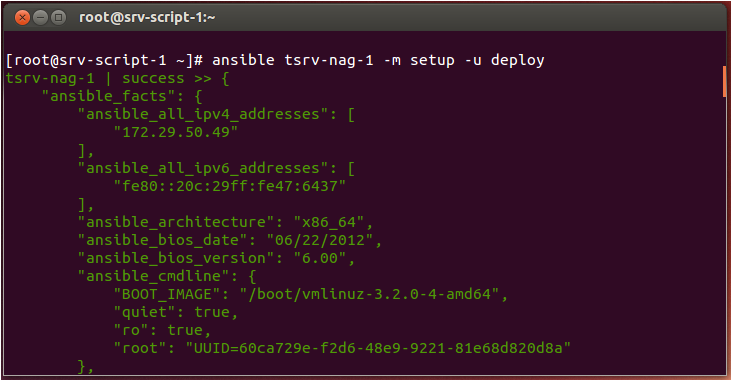

This allows you to enter the SSH and sudo passwords for the account you created upon installing your Linux OS while running the playbook.

This first playbook needs to be with the –ask-sudo-pass and –k options.Three other things to remember and take note of: We are essentially creating a password-less login for the root account, so going forward, all other playbooks can be run using the root account. This playbook runs and copies over the public key in the root directory.
#Ansible untar install
During the OS install process, “jedelman” is the account that was created on all hosts and virtual machines. I’ve been testing against bare-metal and virtual machine installs using an Ubuntu ISO image. You will notice that in this playbook, and only in this playbook, I have remote_user set to jedelman and sudo set to yes. To do this, I use a playbook that is called server_one_time_run.yml. Since Ansible uses SSH by default for connecting to the servers, you will realize the first thing that needs to be done is to copy the public key of where you will execute playbooks from onto the “new” server. Changing things up a bit, this post will cover using Ansible for server automation and I’ll share a few Ansible playbooks that I’ve built and have been using to bootstrap servers and prep them for various applications such as OpenStack and NSX deployments. Over the past few months, I’ve been posting on using Ansible for network automation.


 0 kommentar(er)
0 kommentar(er)
